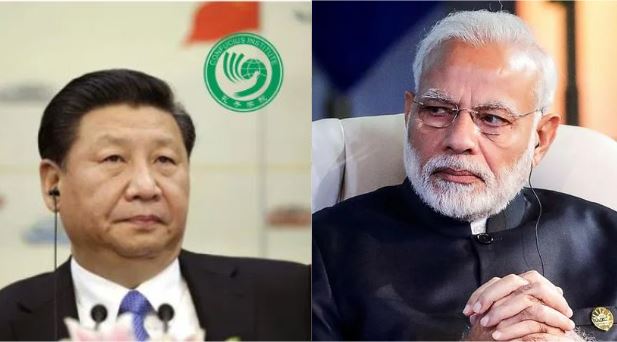The world has had enough of the Chinese bullying and India is leading as the trendsetter in actions against Beijing. In line with this, the Indian Government will soon mandate Indian Universities to take prior permission before signing any Memorandum of Understanding (MoU) with educational Institutions of countries that share a land border with India.
The proposal was first mooted by the Education Ministry after it reviewed Chinese funded Confucius institutes/centres attached to Universities in India and MoUs signed between Indian and Chinese Universities. Its assessments were similar to many other democracies who are on a spree shutting down these institutions, be it, Sweden, the USA among others.
Ideally, these Confucius institutes are meant to serve as Chinese Cultural Centers, where students can learn Mandarin Language and Chinese Confucian Culture. However, that was just the explicit operations and under the surface, these institutes have become propagators of the Communist Party of China’s propaganda and disinformation.
Many democracies have taken stringent actions against these institutes and have increased scrutiny of their educational institutions and think tanks. Analysts and China experts had earlier called these institutes as the Chinese tools in the Information & Cognitive warfare. The US government has called these institutes as Beijing’s attempt to exert political influence in US universities and threaten free speech.
Read more: Chinese Confucius Institutes are being forced to shut down the world over and it’s a great thing
India has been taking steps to counter Chinese influence inside its borders. The massive banning of Chinese owned apps in two phases and then the removal of Chinese bids on infrastructural projects have been highly impactful and have garnered global recognition. Many western countries have followed India’s lead.
Now, India is curbing the extent of activities of Confucius institutes and Chinese Universities. These Confucius programs are financed by the Office of Chinese Language Council International which is linked to China’s United Front Work Department (UFWD), now operating directly under President Xi Jinping. There are three Confucian Institutes in operation at the University of Mumbai, Vellore Institute of Technology and Lovely Professional University.
Apart from that, Delhi’s Jawahar Lal Nehru University has signed an MoU and centres of Confucius Institutes at the University of Mumbai and the School of Chinese Language, Ballygunge, Kolkata are already up and running. The government’s Education Ministry has asked both University of Mumbai and Kolkata School of Chinese Language to submit documents pertaining to their partnership, detailing their exchange activities with Confucius Institutes China HQ.
The Indian government has acted at an early stage, any later and things could have become much worse. As per Hindustan Times, JNU has signed 12 MoUs with Chinese universities but there has been no activity on eight of the agreements. IIT Kharagpur has signed four MoUs, IIT Bombay has two, IIT Madras has four, IIT Delhi has four, IIT Guwahati has five, IIT Gandhinagar has one, IIT Roorkee has two and IIT Bhubaneswar has three MoUs.
The Indian discontent towards Chinese is visible with all that is happening and being reported by TFI. However, these actions are supposed to hit where it hurts the most to China. Beijing for long has invested sizable resources in the Social Sciences departments and think tanks throughout India. Multiple universities and think tanks have exchange programs with Chinese counterparts. And through this, China can groom Indian Youth as per their propaganda.
The Chinese investment, being sizable, attracts the departments in Universities to sign MoUs as soon as possible to secure investments and perks that come with it. However, by all this, the professors, administration, researchers in think tanks become complacent in the propagation of Chinese Communist Ideology and their perspectives.
It is obvious why Chinese Ambassador only addresses webinar conducted by Institute of Chinese Studies, which has a long history of close relations with the Chinese side and provides opportunities to visit China to learn more about its functioning *in collaboration with People’s Republic of China*. All of this sound similar to the operations of USSR and their influence on Indian Higher Education.
Indian government under Prime Minister Narendra Modi has woken up to the Chinese attempt to sabotage Indian Education System, starting from Social Sciences. By these actions, he has successfully decimated all the attempts by Beijing to sabotaging Indian Democracy utilizing Cognitive Warfare.
Vibrant Democracies are the most vulnerable to propaganda machines in the guise of cultural programs like Confucius Institutes. It is because of a far-sighted leadership and a government which emphasizes the importance of a free and independent education system and not influenced by Marxist-Maoist that China is being stopped in its aggressive attempts towards imperialism.








